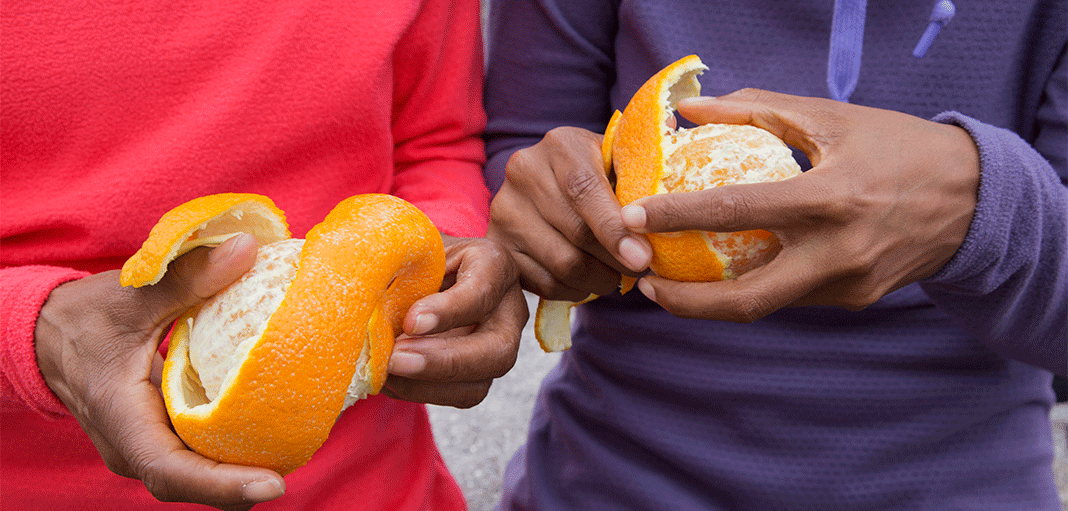Enroll with us in a few easy steps
Pulmonary arterial hypertension (PAH) can impact every part of your day-to-day life. Medication and other therapies are important. There are also things you can do to help manage your symptoms and help you live a fuller, healthier life.
Stay as active as you can. For some people with PAH, even light activity can make you feel tired or short of breath. But, being active is good for both your body and mind. So, do what you can, when you can.
Your doctor may recommend that you go to a cardiac or pulmonary rehab. This is where you will learn activities to help you build stamina and breathe easier. You may also exercise on your own, doing things like walking, swimming, yoga or stretching. You may be able to lift light weights. Talk to your PAH doctor about which activities are best for you. Start slow and be patient as you build up strength and energy. Always stop exercising if you start to feel lightheaded or very tired, or if you feel any pressure in your chest.
To help with activity around the house, put things that you use often at about eye level. Bending over too often could trigger PAH symptoms or make your symptoms worse. And don’t try to get everything done at once. Pace yourself. Do things when you have the most energy. Take one step at a time. You may also want to take advantage of things like online shopping and grocery and meal delivery services.
Take your medications exactly as prescribed. Be sure to tell your doctor and pharmacist about all the medications you take. This includes over-the-counter medications, nutritional supplements, herbal products and vitamins. Set up a system like pill boxes or setting alarms to help you keep track of your medications. Talk with your CVS Specialty PAH care team or your doctor if you have new side effects or if your side effects or PAH symptoms get worse.
Weigh yourself every day. Many people with PAH can develop swelling (edema) if the heart isn’t pumping well enough. Weight gain is a sign of edema. That’s why your doctor will tell you to check your weight often. For example, if you gain two or more pounds in one day or more than 5 pounds in a week, you should contact your doctor. (Check with your PAH doctor for their reporting instructions.) Gaining water weight can mean that your PAH is getting worse, you need a change in your medications or both.
Sometimes, your doctor may limit the amount of water and other fluids you drink in a day. Keep track of what you drink so that you don’t go over your limit. It’s also important to limit the amount of salt you take in.
Prevent illness. Take steps to help avoid getting sick. Get your flu shot every year, get your COVID vaccine and wash your hands often. Avoid crowds and wear a mask or practice social distancing when you are with a group of people. And disinfect high-traffic areas at home.
If you smoke, quit. Smoking may make blood vessels narrow even more. This can make your blood pressure go up and your PAH symptoms worse. Also, nicotine makes it harder for your blood cells to carry oxygen.
Avoid alcohol. Talk to your PAH doctor about how much alcohol, if any, may be safe for you to drink.
Lower your stress. Try things like taking a warm bath, listening to soothing music or practicing deep breathing exercises to help reduce stress. It’s okay to say no to doing things that aren’t necessary. Don’t take on more than you can handle.
Eat a healthy diet. Following a healthy, usually low-salt, diet help may help you keep a healthy weight. A healthy weight means less work on your heart. Work with a dietitian or your PAH doctor to learn about foods that may be helpful or harmful when you have PAH.
Stay connected. Your friends and family may want to help but don’t know how. Talk openly with them about ways they can support and encourage you. Even when you don’t feel able to go out, use things like social media or meet-up apps like Zoom or Facetime.
Join a support group. Whether online, in person or through social media, talking with others living with PAH may give you some emotional support. It’s also a great way to get and share ideas for getting through the day and managing symptoms and therapies. Visit myPHteam.com/CVS to get connected.
Talk to your health care team. Your PAH doctor, CVS Specialty care team and other providers can show you new or better ways to manage your PAH. Managing your PAH often means coping with depression. Talk honestly with your doctor and other providers. They can give you advice and suggest resources to help you manage or overcome depression.
If you have questions about your condition or medications, call your CVS Specialty PAH care team at 1‑87-PAHCARE-8 (1-877-242-2738), anytime.
This information is not a substitute for medical advice or treatment. Talk to your doctor or health care provider about your medical condition and prior to starting any new treatment. CVS Specialty assumes no liability whatsoever for the information provided or for any diagnosis or treatment made as a result, nor is it responsible for the reliability of the content.
CVS Specialty does not operate all the websites/organizations listed here, nor is it responsible for the availability or reliability of their content. These listings do not imply or constitute an endorsement, sponsorship, or recommendation by CVS Specialty.
Your privacy is important to us. Our employees are trained regarding the appropriate way to handle your private health information.

